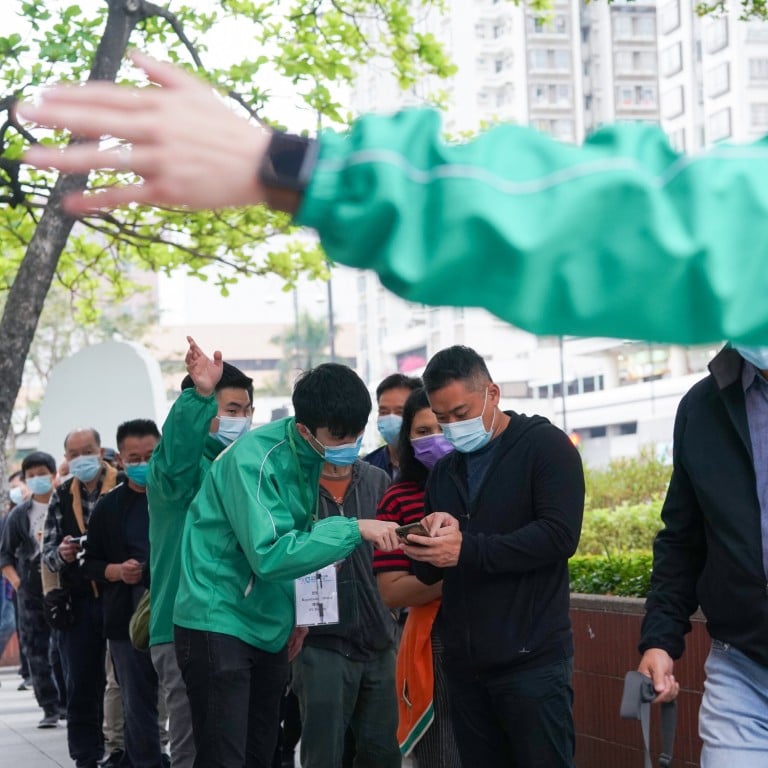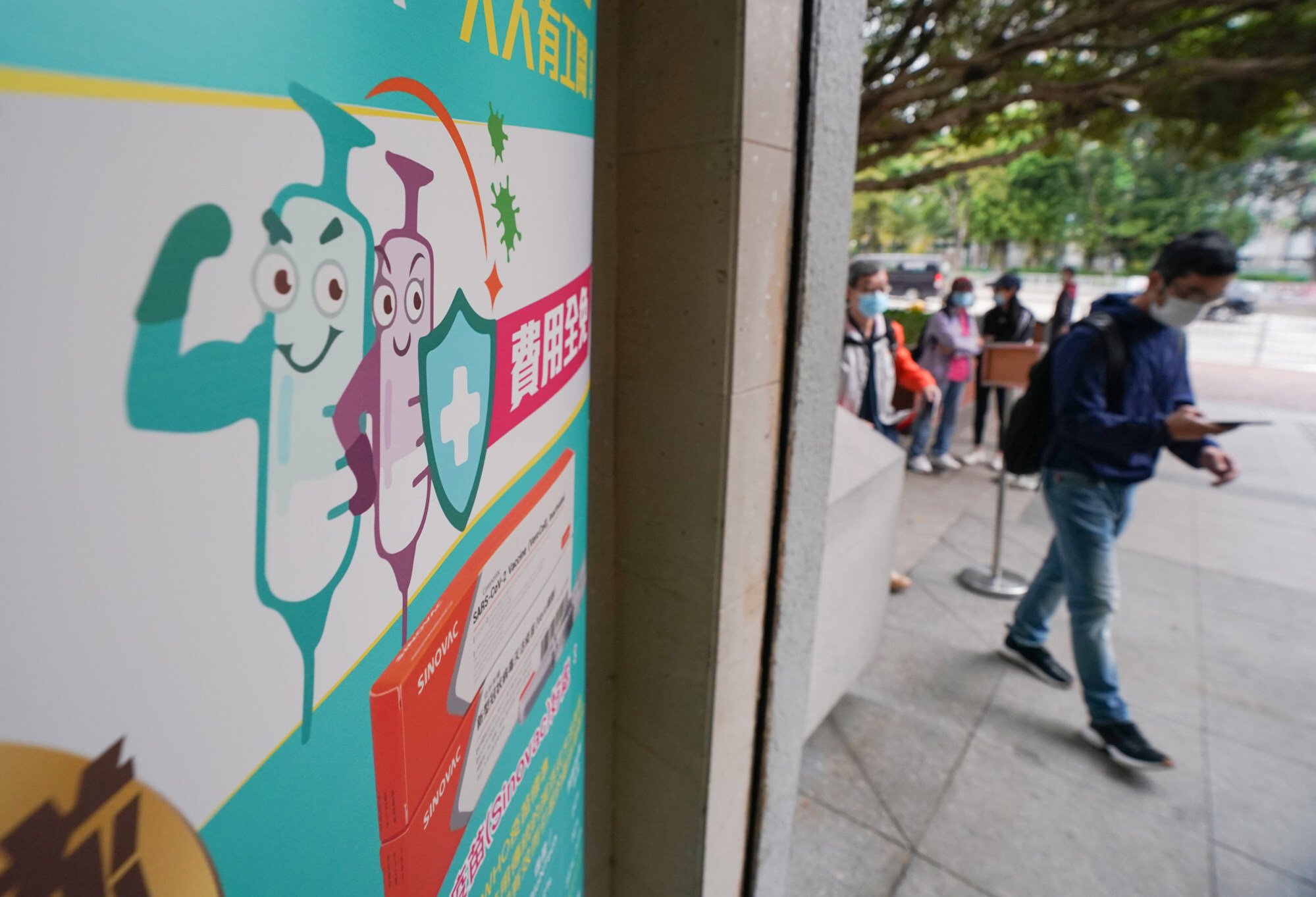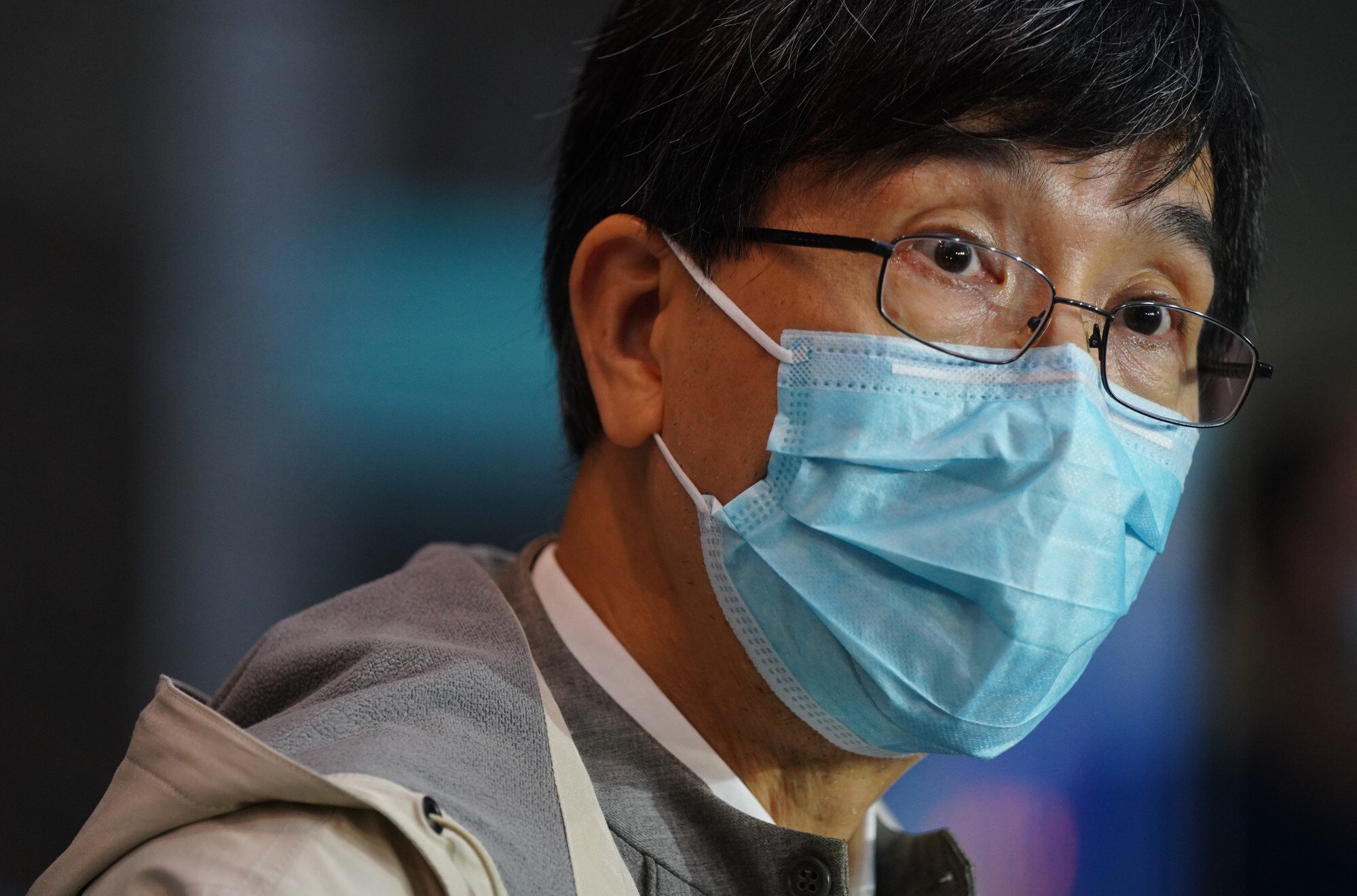
Coronavirus: Hong Kong’s BioNTech vaccination drive likely to resume next week after probe into packaging flaws finds no systemic errors
- Top official in charge of the mass inoculation drive earlier in day said city could resume administering the German-made vaccine if no major problems were identified
- Hong Kong reports zero local infections for first time in over four months
The government issued a statement on Saturday announcing the initial investigation results hours after Secretary for the Civil Service Patrick Nip, the top official in charge of the mass vaccination drive, said he was expecting a report next week and the city could resume administering the German-made vaccine if no major problems were identified.
The statement said that a “comprehensive investigation covering all aspects of the supply chain” by BioNTech and its mainland Chinese distributor Fosun Pharma had not found any systemic problems that may have caused the flaws discovered in Hong Kong. The investigation covered the entire process, from packaging at BioNTech’s factory in Germany and shipping to Hong Kong to storage and logistics management upon arrival, as well as inspection and handling at community vaccination centres.
“So far, there is no indication of any obvious systemic factors during the processes from filling and packaging to administration that could have led to the relevant packaging defects,” the statement said. “Premised on the condition of safety, the government will strive to resume the administration of the BioNTech vaccine for members of the public as soon as possible.”
Investigators said “environmental factors” could have damaged the vials during long-distance transportation, but concluded that the defects were not related to logistics and cold-chain management. Random sampling and testing of fully packaged vials found no leakage.
“Our plan is if the current batches have no quality and safety concerns, we can resume the vaccination,” Nip said earlier in a morning radio programme, adding that priority would be given to those due for their second jab.
“Residents do not have to redo the booking themselves; we will arrange an available time slot for them.”
Professor Ivan Hung Fan-ngai, co-convenor of an expert committee monitoring the effects of vaccines, expected the BioNTech programme to resume next week.
Dr Lam Ching-choi, an Executive Council member who sits on a task force overseeing vaccine distribution, also said the government expected a resumption next week after the manufacturer submitted its full investigation report.
“The findings currently show that more than 1 million remaining vaccines in Hong Kong are safe to use and it should be individual cases that some bottles with defects were found,” Lam said. “But the government will still ask the manufacturer to supply more batches of vaccines for the city to fulfill its order of 7.5 million doses. It will be better for us to wait for the full report, although currently it is pretty certain that there are no safety concerns.”
Government pandemic adviser Professor David Hui Shu-cheong, who has already received his first BioNTech dose, said the findings proved that the vaccine was safe and he was hopeful the interrupted roll-out would resume.

Professor Yuen Kwok-yung, another government pandemic adviser who received his first BioNTech shot before the vaccine roll-out was suspended last Wednesday, said there was no need for the public to worry, as he believed the government would solve the problem quickly. He noted that he already had “a high level of antibodies” after the first jab.
“As long as I can get a second dose within 42 days, or even a short period after 42 days, I will be fine. There’s still some time,” he said.
This came as Chief Executive Carrie Lam Cheng Yuet-ngor warned that herd immunity would take longer given the city’s vaccination take-up rate, even as she held out hope that social-distancing measures could be eased as an incentive.
EU reveals huge Covid-19 vaccine exports amid its own struggle to inoculate
In her monthly review of the pandemic situation, Lam said the vaccination rate remained low, at about 430,000 people as of Friday night, representing 6.6 per cent of eligible groups aged 16 or above, or 5.7 per cent of Hong Kong’s total population. By Saturday evening, the figure had increased to about 437,200.
“Based on the existing vaccination rate, I am afraid it takes a longer time to meet the target,” she said. “To encourage more citizens to get vaccinated, we are actively studying if we can adjust social-distancing measures if a certain number of people are vaccinated. We will also discuss with other jurisdictions if any convenience can be offered to the vaccinated when travelling overseas.”

The government’s target for creating herd immunity is vaccinating 70 per cent of the entire population, but the already low take-up rate has been slowed further by the suspension of the BioNTech vaccine after packaging defects were found in the batch numbered 210102.
Health officials described the suspension as purely precautionary when they reported 57 instances of packaging issues – including cracked vials and stains on the glass exterior – to Fosun.
It was the first major interruption to the city’s mass vaccination programme since its launch a month ago.
The take-up rate for the second vaccine being rolled out in Hong Kong, China’s Sinovac, has been lower than that of BioNTech.
Potential incentives were also dangled earlier by Nip, who said the Hospital Authority was considering allowing visitors to enter public hospitals on compassionate grounds if they had received two doses of their vaccine, while certain workers, such as those employed by catering firms, massage parlours and fitness centres, could be exempted from regular coronavirus testing every 14 days.
The government was also considering letting vaccinated care-home residents and their visitors meet in designated rooms with proper ventilation, according to Exco member Lam.
All six of Saturday’s new virus cases, involving people aged 28 to 45, were imported – two each from India and the Philippines, and one each from Indonesia and Pakistan – taking the city’s total to 11,445, with 205 related deaths.
“We are finally reaching a stage where we have a chance to achieve zero cases, and we hope it will remain that way,” government pandemic adviser Yuen said. “We have to be very careful with any lifting of social-distancing measures at this moment. If we can record a consecutive 14-28 days without a local infection, the city will be free of the coronavirus.”
Hong Kong last recorded zero local cases on November 16, before the city’s fourth wave of infections began later that month. Over the past week, authorities have recorded between four and 10 local cases per day, only a few of which were untraceable.
Three local infections were recorded on Friday, with the sole untraceable case involving a 38-year-old Japanese flight attendant. She had not been to work since November, but lives in a subdivided flat in Causeway Bay where around 10 other tenants needed to be quarantined.
Health authorities were still looking for two of her neighbours on Saturday, with Yuen saying they were deemed close contacts of the patient. A compulsory testing order was also issued for the building.

The woman also went to a North Point gym called GO24 Fitness at least seven times during the incubation and communicable period of her infection. Health authorities suggested the gym close for 14 days, and that around 20 fitness classmates and four instructors be quarantined.
“We have to be very strategic, and that’s why the Centre for Health Protection is now carrying out investigations at the gym even if there was only one case,” Yuen told reporters as he inspected the premises on Saturday.
Yuen said he believed the GO24 situation was much less severe than that at another gym, Ursus Fitness in Sai Ying Pun, which has been linked to 155 cases since early March.
“The chance of having a superspreading cluster from here is small,” he said. “Unlike Ursus Fitness, where there was no fresh air inside the facility, there is ventilation and fresh air in this gym, and there are also several air purifiers inside when people exercise.”
“A few close contacts might be infected, but it will not expand to a very big outbreak,” he added, noting that health authorities had provided suggestions for improvements at the gym before it resumed operation.
Yuen urged the roughly 500 people who went to GO24in the last two weeks to get a virus test, and authorities were also notifying people who had been to the two burger and coffee shops the patient had visited that they could have been exposed. He said the patient did not report to the health authorities immediately because she thought her symptoms were side effects of taking her first BioNTech shot.


